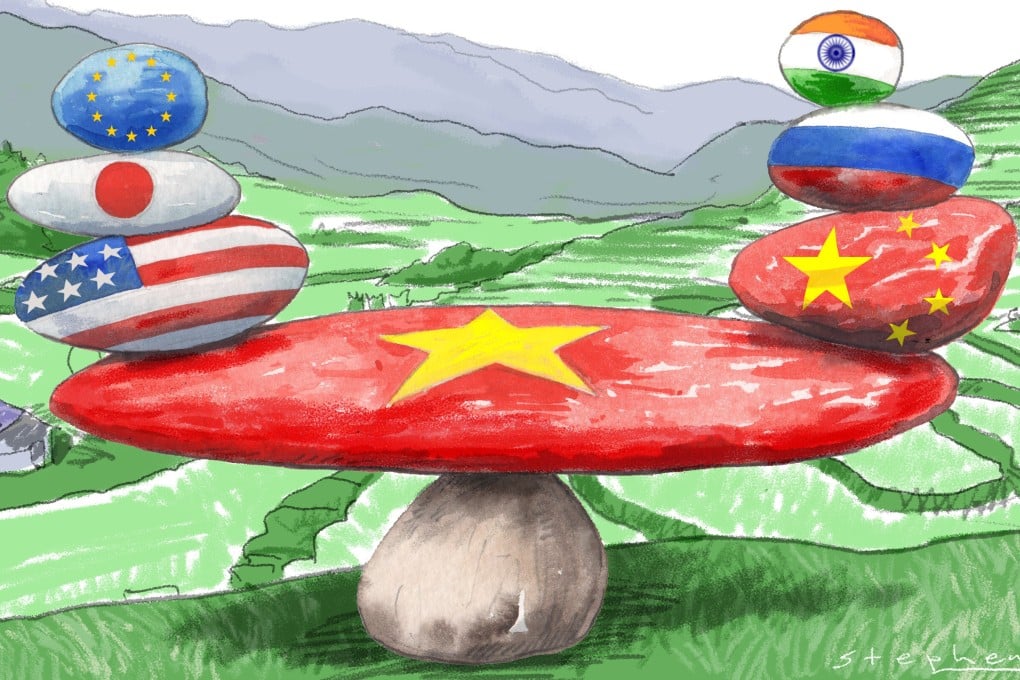Opinion | China-US rivalry: how Vietnam’s deft balancing act keeps it from having to pick sides
- Hanoi has shunned overreliance on any foreign power and enhanced its defensive capabilities by developing a global network of strategic partnerships
- Thanks to its ‘omnibalancing’ strategy, a self-reliant Vietnam is neither too dependent on, nor fully vulnerable to, any superpower

Maoist China was a supporter of Vietnam during the latter’s early anti-colonial struggle against France and, later, the United States. Ho’s very name was a local transliteration of Hu Zhiming.
During his exile years in China throughout the early 20th century, where he forged an alliance with local communists, Ho was even married to a Chinese woman named Zeng Xueming, also known as Tang Tuyet Minh.
Far from fully aligning with the US against its fellow communists to the north, though, Vietnam’s leaders have embraced an “omnibalancing” strategy which emphasises the cultivation of good strategic relations with a diverse set of powers.
Accordingly, Vietnam has maintained robust communication channels with China, shunned overreliance on any foreign power and enhanced its defensive capabilities by developing a global network of strategic partnerships from Brussels to Moscow, New Delhi and Tokyo.
